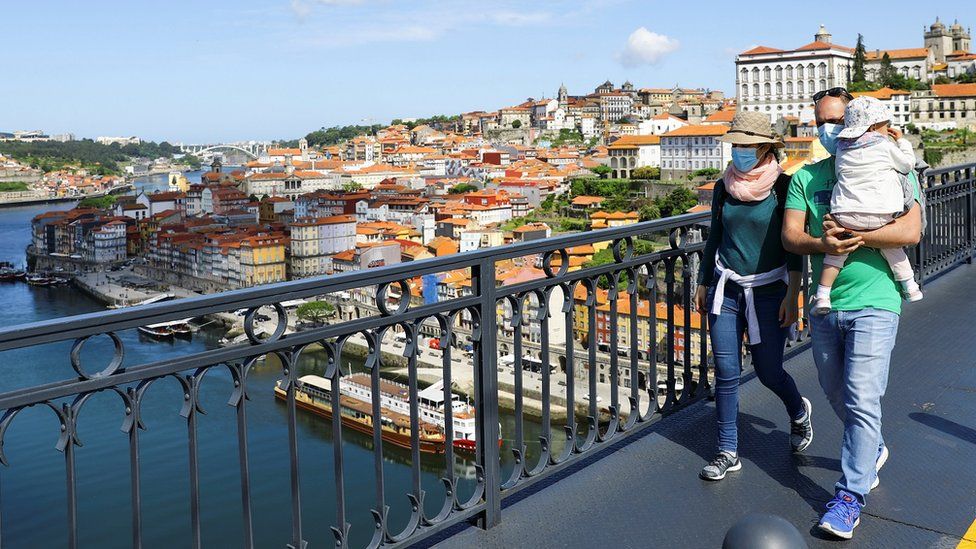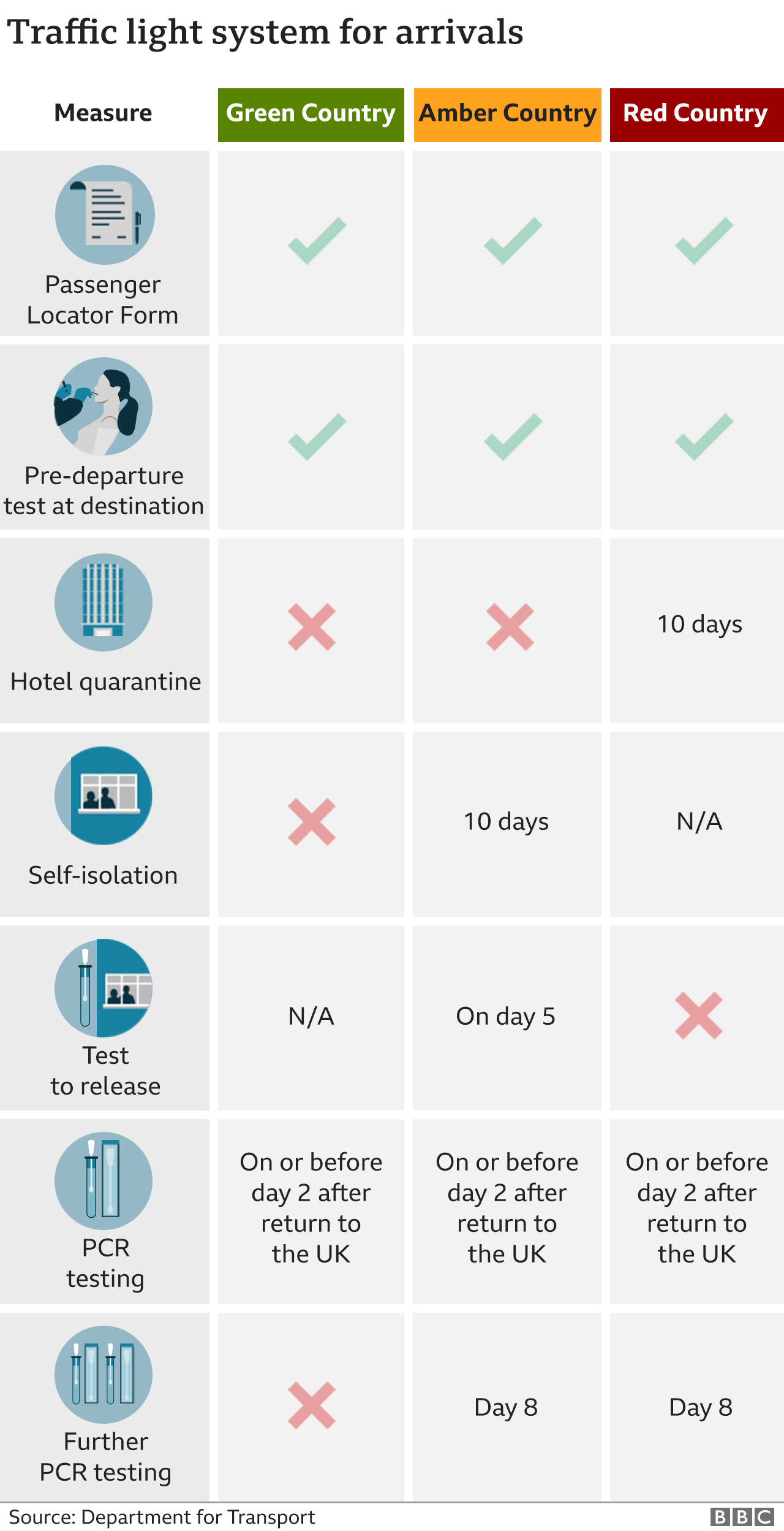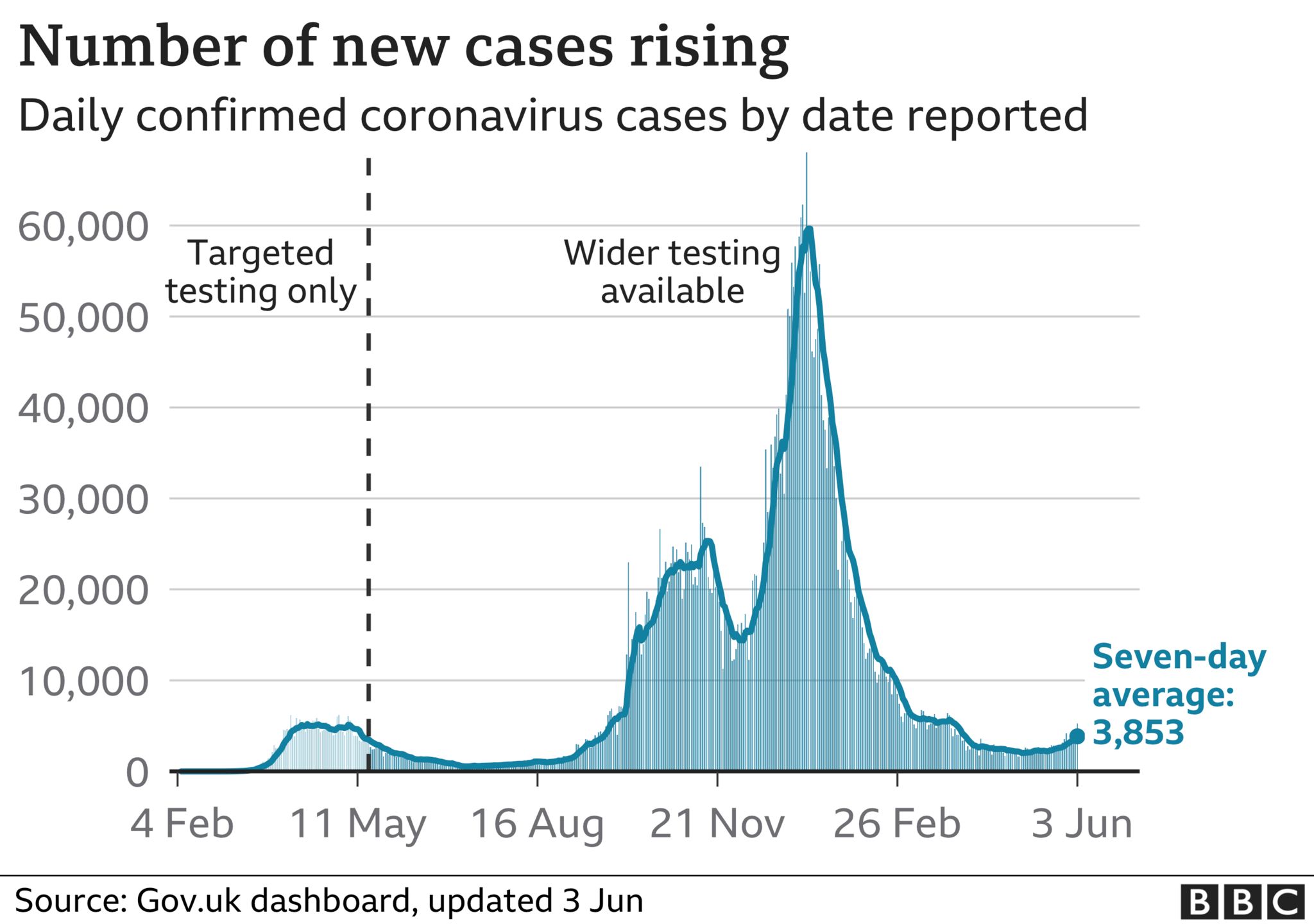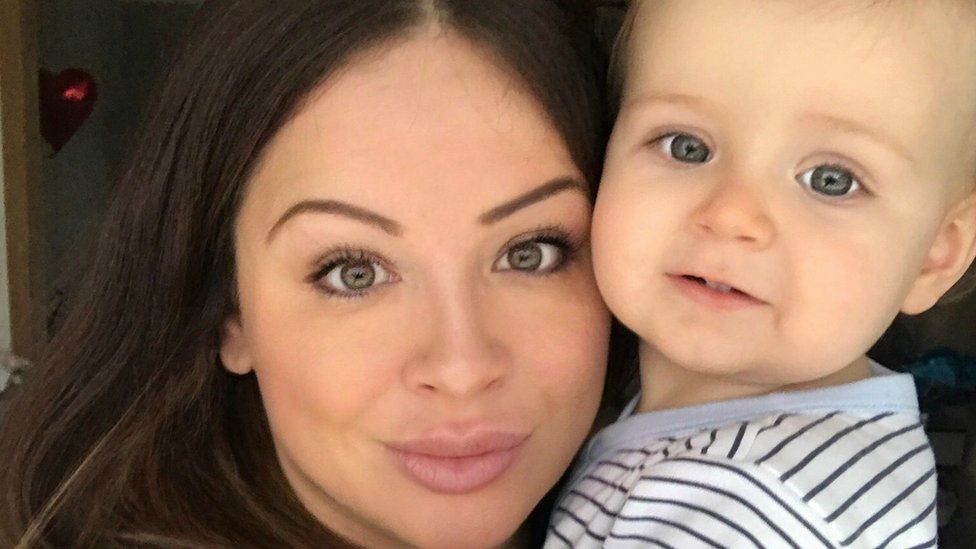
Portugal has questioned the UK decision to remove it from the travel green list from next Tuesday.
The move to the amber list means UK tourists should not visit the country and returnees must isolate for 10 days.
Transport Secretary Grant Shapps cited rising cases and a Covid mutation found in Portugal, saying ministers did not want to take risks before the planned final easing of England's restrictions.
But Portugal said it could not understand the "logic" of the move.
A post from the Twitter account of Portugal's Cabinet of Minister of State for Foreign Affairs said: "Portugal continues to carry out its prudent and gradual deconfinement plan, with clear rules for the safety of those who live here and those who visit us."
The travel industry has also criticised the change, saying it would threaten jobs and consumer confidence.
The UK government said the decision to move Portugal, including Madeira and the Azores, to the amber list followed increased concern about a mutation of the Delta variant, which was first identified in India.
The Department for Transport said 68 cases of the Delta variant have been identified in Portugal, including cases with an additional, potentially detrimental mutation, being referred to as the Nepal mutation.
Public Health England (PHE) told the BBC the mutation of the variant was present in multiple countries, including a small number of cases in the UK.
It is investigating the mutation to better understand whether it could be more transmissible and less effectively tackled by vaccines.
The number of positive Covid cases in Portugal have also nearly doubled since the last review, the department said, adding the situation "has required swift action to protect the gains made with the [UK] vaccine rollout".
Mr Shapps said the government "simply don't want to take the risk as we come up to June 21 and the review of the fourth stage of the unlock".
On that date, all legal restrictions on social contact in England are due to be lifted - but some scientists have said this should be delayed because of rising cases.
A final decision will be made on whether to proceed with the easing of restrictions by 14 June.
On Thursday, the UK reported 5,274 new cases - the highest figure since 26 March - and another 18 deaths within 28 days of a positive test.
PHE believes the Delta variant is now dominant in the UK and that it may be linked to a higher risk of hospital admission.


In the first review of England's traffic light list for international travel, no new destinations were added to the green list, where travellers must be tested but do not have to quarantine on their return.
Seven countries - Afghanistan, Bahrain, Costa Rica, Egypt, Sri Lanka, Sudan, and Trinidad and Tobago - will also be added to the red list.
Only UK or Irish nationals or UK residents are allowed to travel from red list countries and they must pay to isolate for 10 days in a government-approved hotel on their arrival.
Scotland, Wales and Northern Ireland have confirmed they will adopt the same changes, which come into effect at 04:00 BST on Tuesday.
People should not travel to amber or red list countries, according to government guidance.


The change to Portugal's status means holidaymakers face a scramble for flights home before the new rules come into force.
Tim Alderslade, chief executive of Airlines UK, told the BBC's World Tonight programme: "I think we could get back to where we were last summer with people just not wanting to book because of the risk."
Describing the current reopening of international travel as "in name only", he added: "The feeling within the sector is we are being potentially sacrificed in order to protect the domestic reopening on 21 June."
The Airline Operators Association said the industry would require substantial government support to protect jobs if there was to be "another disastrous summer as a result of a continued overly-cautious approach".
Labour said downgrading Portugal was "not the answer" and called for the amber list to be scrapped altogether, citing reports that more than 50,000 people were travelling to the UK every day.
Yvette Cooper, who chairs the Commons Home Affairs Committee, said the system needed to be more transparent about why decisions were taken.
"Otherwise, what we will end up with is a summer of just chopping and changing, which will just end up being chaotic for everyone," the Labour MP told BBC Two's Newsnight.

'This holiday was everything for us'

Kerry, a photographer from the Wirral, says her family - like many others - have had "the year from hell".
Her partner has been shielding for over a year due to an auto-immune disease, Kerry has had to nurse her mother through Covid-19 and a stroke, and her 18-month old son has hardly known a world without a pandemic.
She was just about to book a trip to Portugal when the rules changed. "This holiday was everything for us our first with our baby who has had no experiences in his first 18 months on this planet," she says.
But others say they are likely to make the trip anyway.
One man told the BBC: "Unless they say, you must not go, you will be fined if you go, we might well still go and just have to bear the additional costs of an extra PCR test and the fact that we have to quarantine."


- HARMFUL STEREOTYPES: From Psycho to Skyfall, Inside Cinema looks at the camp villain trope
- THE PACT: What really happened that night?

World - Latest - Google News
June 04, 2021 at 09:12AM
https://ift.tt/3cdjP2D
Covid-19: Portugal queries amber list move as UK stresses risk to unlocking - BBC News
World - Latest - Google News
https://ift.tt/2SeTG7d
https://ift.tt/35oCZy1
Bagikan Berita Ini














0 Response to "Covid-19: Portugal queries amber list move as UK stresses risk to unlocking - BBC News"
Post a Comment